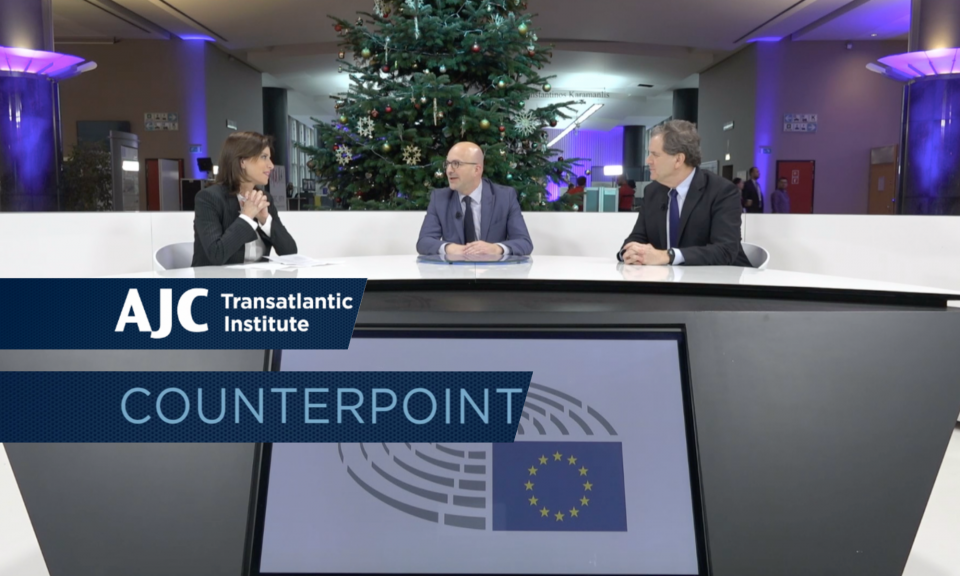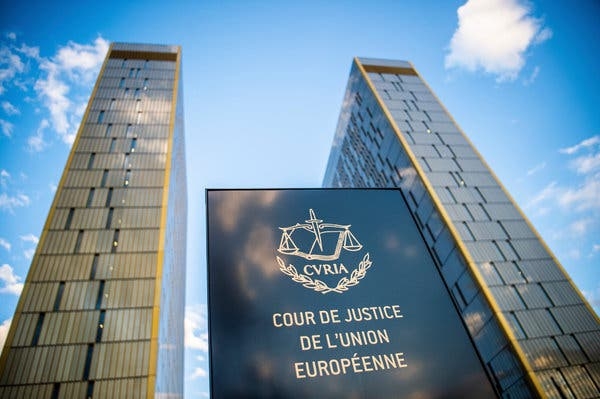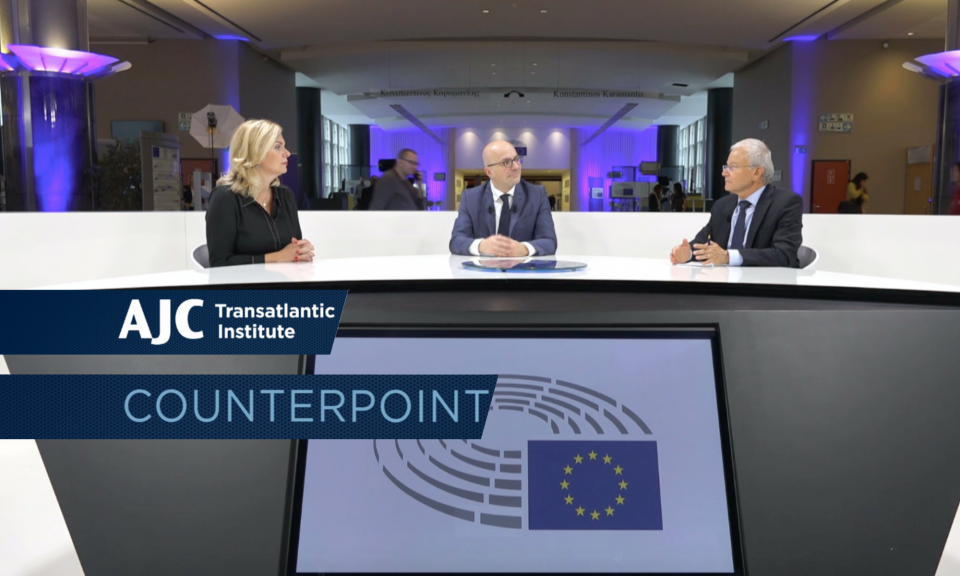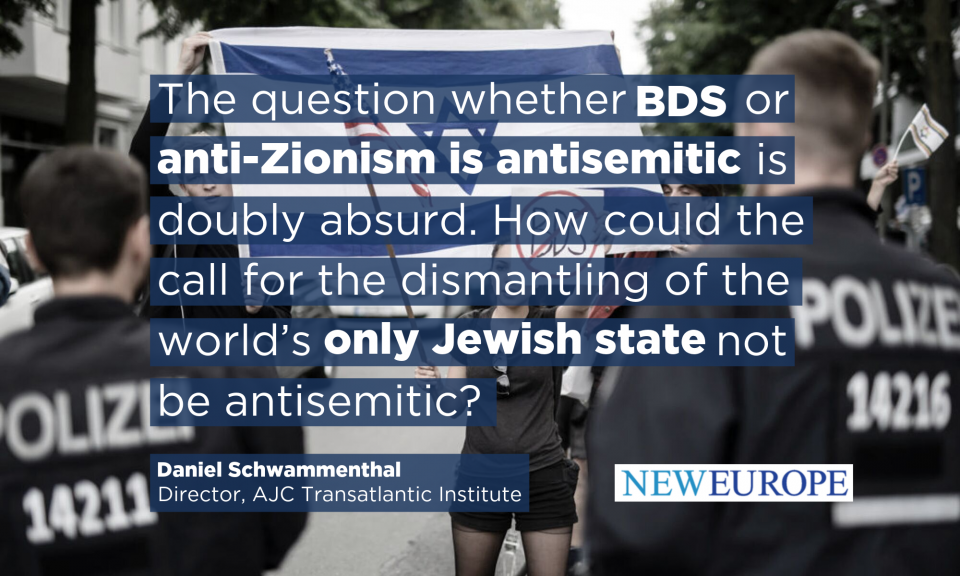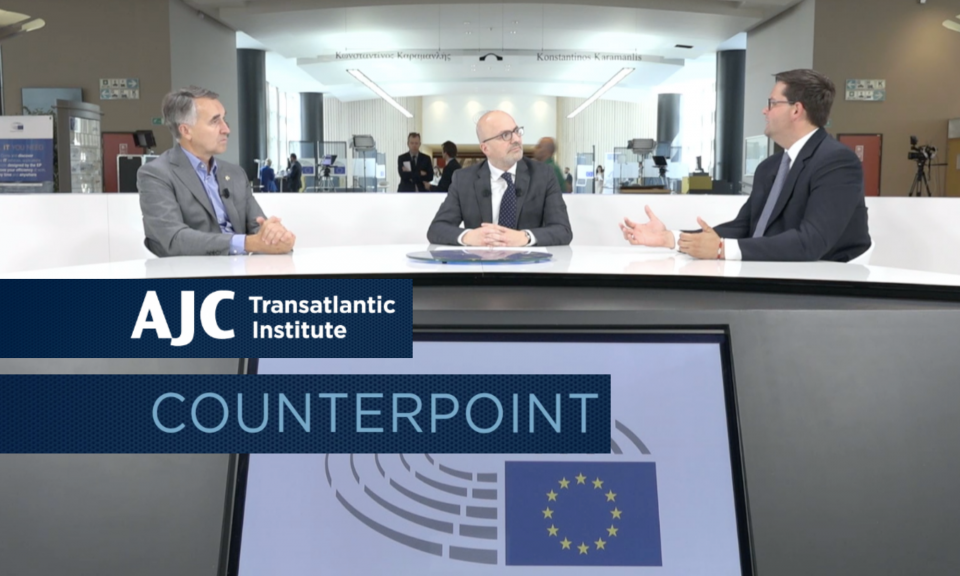Analysis
Can the UN Finally Cease Its Relentless Anti-Israel Bias?
Can the UN Finally Cease Its Relentless Anti-Israel Bias?
September 13, 2021
by Lukas Mandl and Daniel Schwammenthal
A few years ago, after the United Nations General Assembly (UNGA) had just passed its usual litany of anti-Israel resolutions, an exasperated UN translator accidentally told the world the truth. Thinking only her colleagues could hear her speaking into the microphone, she caused laughter but no embarrassment among the diplomats as she exposed their farce: "When you have...like a total of 10 resolutions on Israel and Palestine, that's a bit much, no?"
Hundreds of parliamentarians from both sides of the Atlantic agree that this is way too much. In an unprecedented initiative, spearheaded by the Transatlantic Friends of Israel, 312 cross-party lawmakers from the European Parliament and national legislatures from EU member states, the U.K., Switzerland, Norway, the U.S., Canada and Israel have urged EU member states and fellow democracies to end the systematic discrimination against Israel at the UN.
"Within the context of rising global antisemitism, the relentless, disproportionate and ritualistic condemnation of the world's only Jewish state at the UN is particularly dangerous and must finally end. Israel deserves attention and scrutiny, as does every other nation. But it also merits equal treatment—nothing more, nothing less," the declaration reads in part.
Last year, for example, the UN General Assembly adopted 17 one-sided resolutions against Israel and only six against any of the other 192 member states for human rights violations. As the 76th session of the UN General Assembly opens tomorrow, it is set to establish a similarly shameful record.
A particularly outrageous spectacle—the 20th anniversary summit of the UN's so-called 2001 World Conference Against Racism—will take place on September 22. We write "so-called" because the original conference held in Durban, South Africa perverted its agenda from fighting hatred to advocating hatred against Jews. Israel was singled out and libeled as an illegitimate racist apartheid state, setting the agenda for the next two decades of anti-Israel bigotry. Jewish conference participants were physically threatened and had to hide their kippahs. "Anti-racist" activists screamed, "you don't belong to the human race" and held placards that read, "Hitler Should Have Finished the Job."
Showing moral clarity, Australia, Austria, Bulgaria, Canada, Croatia, Cyprus, the Czech Republic, France, Germany, Hungary, Israel, Italy, Netherlands, New Zealand, the U.K. and the U.S. announced they would stay away from this odious affair. But as of the time of this writing, 17 EU member states are still on track to attend the celebration of what was an antisemitic hate fest, with speeches scheduled from the UNGA president, the UN secretary general, and the UN high commissioner for human rights.
Unfortunately, anti-Israel bias isn't limited to the UNGA, but permeates many UN bodies and agencies—and nowhere more so than at the UN Human Rights Council. The Geneva-based organization targets only one state—Israel—with a separate, stand-alone agenda item. Consequently, an astonishing 21 percent of its resolutions focus solely on the world's only Jewish state. Or take the UN's Economic and Social Council, which last September condemned Israel alone among the nations for allegedly violating women's rights.
Even purely scientific agencies, such as the UN's World Health Organization—where politicization can literally cost lives—have caught the anti-Israel virus. Just this May, in the midst of the COVID-19 crisis, the WHO condemned Israel as a violator of Palestinians' health rights—the only country-specific discussion during its entire annual assembly.
But Israel isn't the only victim of this relentless double standard. The UN's own reputation is greatly damaged in the process—as are the many genuine victims of grave human rights violations around the globe. They are far too often neglected as the UN is busy pursuing its anti-Israel obsession.
As the declaration points out: "By violating its own Purposes and Principles, which commit the organization to 'develop friendly relations among nations,' and to the 'principle of the sovereign equality of all its Members,' the UN is undermining its credibility and losing public support. Moreover, by spending an inordinate amount of time on Israel, the UN is diverting scarce resources and attention from urgent international crises."
Or, as that hot mic translator put it more bluntly: "There's other really bad sh*t happening, but no one says anything about the other stuff."
A Europe that wants to stand for democracy, human rights and the rules-based international order can no longer be complicit in this cynical game, which treats Israel by separate rules and in so doing undermines the UN's very own integrity and efficacy.
Of course, given the majorities at the world body, European opposition to anti-Israel bias would not in itself end that bias. But if Europe joined ranks with the U.S. and the other anglophone democracies such as Canada, the U.K. and Australia (which often join Washington in opposing anti-Israel bias), they could deprive these bigoted resolutions of their democratic legitimacy. And over time, such a united front of Western democracies, who happen to pay collectively almost 60 percent of the UN budget, ought to be able to bring about the necessary change.
The late UN Secretary General Kofi Annan famously remarked that both Israel and the United Nations "rose from the ashes of the Holocaust." As the declaration therefore concludes: "The transatlantic community of democracies has thus a sacred duty to ensure that the UN system is no longer misused to constantly vilify the Jewish state and, in so doing, damage the world body itself and its universal values."
May this be the year the transatlantic community finally acts on this duty.

